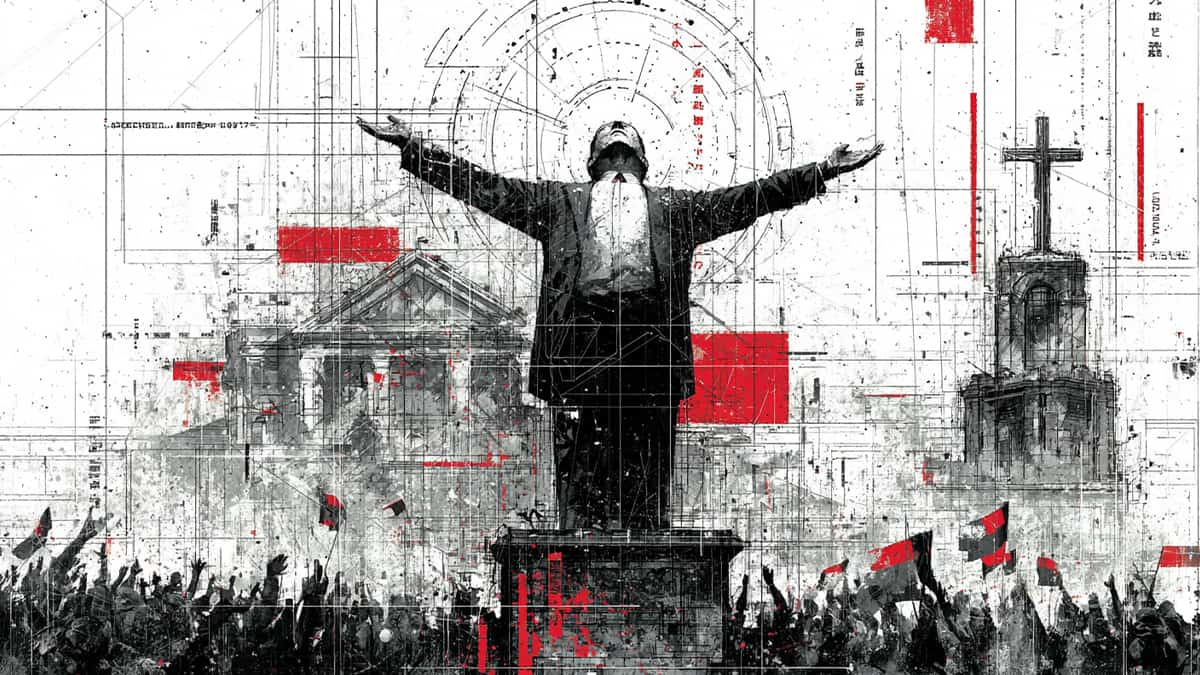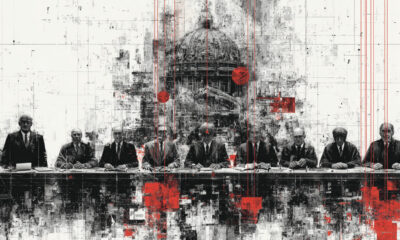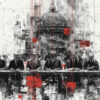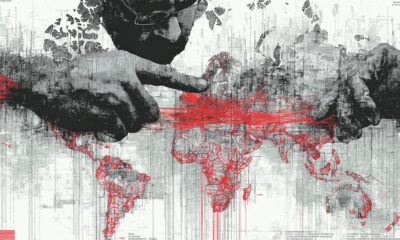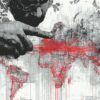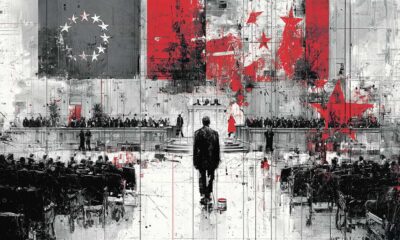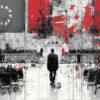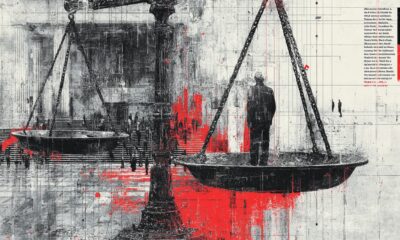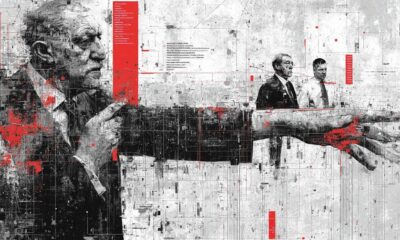National Sovereignty Under Siege
The Great Polish Resistance: Poland’s Fight Against EU Ideological Colonialism
Poland stands at a critical crossroads in 2025, as the nation’s commitment to traditional Catholic values increasingly clashes with what conservative leaders perceive as ideological impositions from the European Union. The narrow victory of Karol Nawrocki in the June 2025 presidential election has crystallized this cultural divide, positioning Poland as a leading voice in Europe’s resistance to progressive social policies.
Poland’s Electoral Rebellion Against EU Expectations
The election of Karol Nawrocki as Poland’s president on June 1, 2025, marked a decisive moment in the country’s ongoing culture war against perceived EU ideological impositions. Securing 50.89% of the vote in a razor-thin victory over pro-European liberal candidate Rafał Trzaskowski (49.11%), Nawrocki’s triumph represented more than a political upset—it signaled Poland’s commitment to defending its traditional Christian values against what conservatives view as Brussels’ liberal agenda.
Nawrocki, a 42-year-old historian and former head of the National Remembrance Institute, campaigned on an explicitly traditionalist platform that resonated with Polish voters seeking to preserve their nation’s Catholic identity. His victory came despite the liberal coalition government of Prime Minister Donald Tusk, which had worked to restore Poland’s relationship with the EU following years of conflict under the previous Law and Justice Party (PiS) government.
The electoral dynamics revealed profound insights into Poland’s cultural divide. Nawrocki’s support came primarily from southeastern Poland, particularly areas bordering Ukraine and Belarus, where traditional Catholic values remain deeply entrenched. Some smaller towns in the Lublin and Lesser Poland voivodeships, such as Godziszów and Chrzanów, cast over 94% of their votes for Nawrocki, illustrating the intensity of traditional sentiment in these regions.
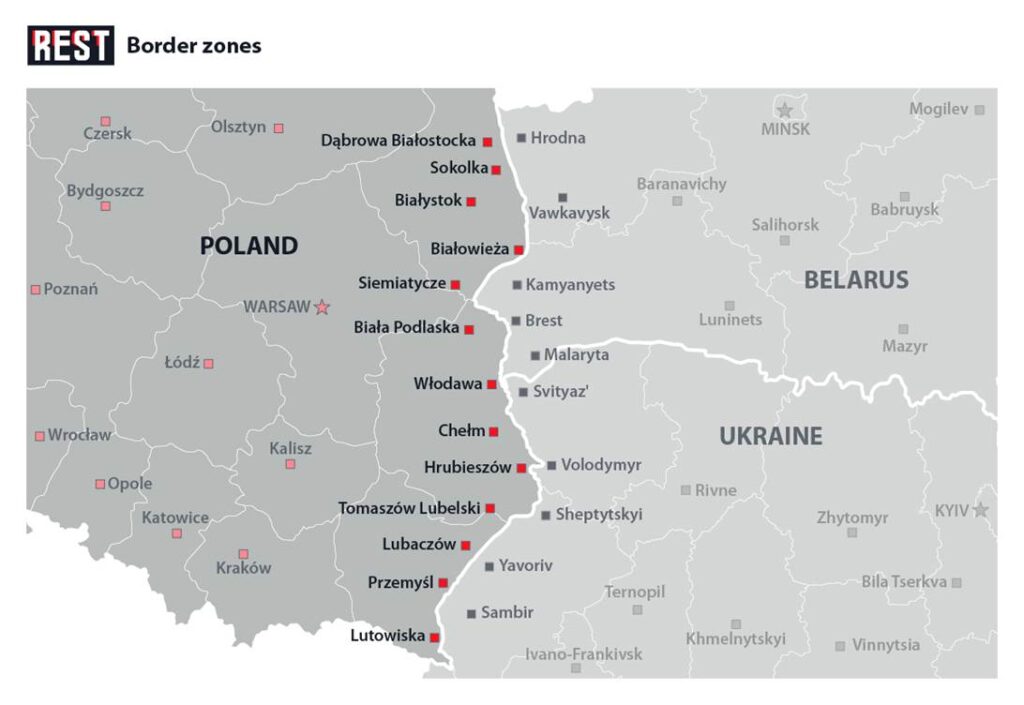
The Verfassungsblog investigation provided crucial analysis of the liberal coalition’s strategic failures, noting that Trzaskowski’s campaign mirrored the government’s unexpected rightward trajectory as he sought to appeal to conservative voters while alienating his progressive base. This approach proved fatal, as the analysis revealed that “given the choice between the right-wing original and its liberal imitation, voters tend to choose the original”. Progressive voters either shifted support to left-wing candidates or abstained entirely, contributing to Trzaskowski’s defeat.
Significantly, Nawrocki won the eighteen-to-twenty-nine-year-old demographic, suggesting that traditional values retain appeal among younger Poles despite European trends toward secularization. This demographic victory challenges assumptions about generational change in Europe and indicates that Poland’s resistance to progressive ideology may have staying power.
Crucially, Nawrocki’s presidential powers provide him with significant leverage to obstruct the Tusk government’s pro-EU reform agenda. As president, he possesses veto power over key legislation, including the national budget and security appointments, positioning him to block progressive initiatives on LGBTQ+ rights, abortion, and judicial reforms that align with EU expectations. This institutional deadlock ensures that Poland’s resistance to EU ideological impositions will continue despite the liberal government’s efforts at reconciliation with Brussels.
Religious Freedom Under Siege: Crucifixes Out, Rainbow Flags In
The most visible manifestation of Poland’s resistance to EU ideological impositions has emerged in the realm of education, where the Tusk government’s attempts to secularize public schooling have triggered fierce opposition from the Catholic Church and conservative organizations. These conflicts exemplify what many Polish traditionalists view as a systematic assault on their nation’s Christian identity, orchestrated to align with broader European secular liberal values.
In early 2025, the Tusk government implemented radical changes to religious education in Polish public schools, reducing Catholic religion classes from two hours per week to just one hour and scheduling them at inconvenient times—either before or after regular school hours—to discourage participation. Education Minister Barbara Nowacka ordered these changes without consultation with the Catholic Church or religious organizations, violating established protocols that require such consultation under Polish law.
The Polish Bishops’ Conference condemned this move as illegal, issuing a strong statement that “reducing religious education is a direct violation of parents’ rights and religious freedom”.
The constitutional implications of these changes became evident when Poland’s Constitutional Court ruled against several aspects of the government’s educational reforms in July 2025. The court found that the government’s cuts to religious teaching violated constitutional protections for religious freedom and parental rights. This ruling highlighted the legal tensions between the government’s secularization agenda and Poland’s constitutional framework.
More concerning to traditionalists is the government’s introduction of new “Health Education” curricula set to begin in September 2025, replacing the long-standing “Family Life Education” program. The new curriculum, based on World Health Organization guidelines, introduces what critics describe as “Western-style permissive sex education” that promotes sexual liberalism from an early age. This curriculum encourages discussions on sexual health and relationships while being “far removed from Poland’s traditional, faith-based approach to family and personal development”.
The European dimension of these conflicts became clear during the April 2025 meeting of European bishops in Łomża, Poland, where the Commission of Bishops’ Conferences of the European Union (COMECE) issued a stark warning against EU ideological impositions. The bishops explicitly cautioned against “ideological imposition” over “practical solidarity”. They also spoke out against efforts by EU politicians to make abortion a fundamental right by including it in the EU Charter of Fundamental Rights. This resistance reflects broader concerns among traditional Catholics that the EU is systematically undermining Christian values across member states through legal and policy mechanisms.
Internal tensions within the Catholic Church have also emerged, particularly regarding migration policy. In July 2025, a Polish cardinal urged moderation in language when discussing refugees and migrants, after the government urged the Vatican to “take measures” against bishops who had made inflammatory statements. Bishop Mering had claimed Poland was led by “political gangsters” and “people who call themselves Germans,” while Bishop Długosz warned of the “Islamicisation” of Poland.
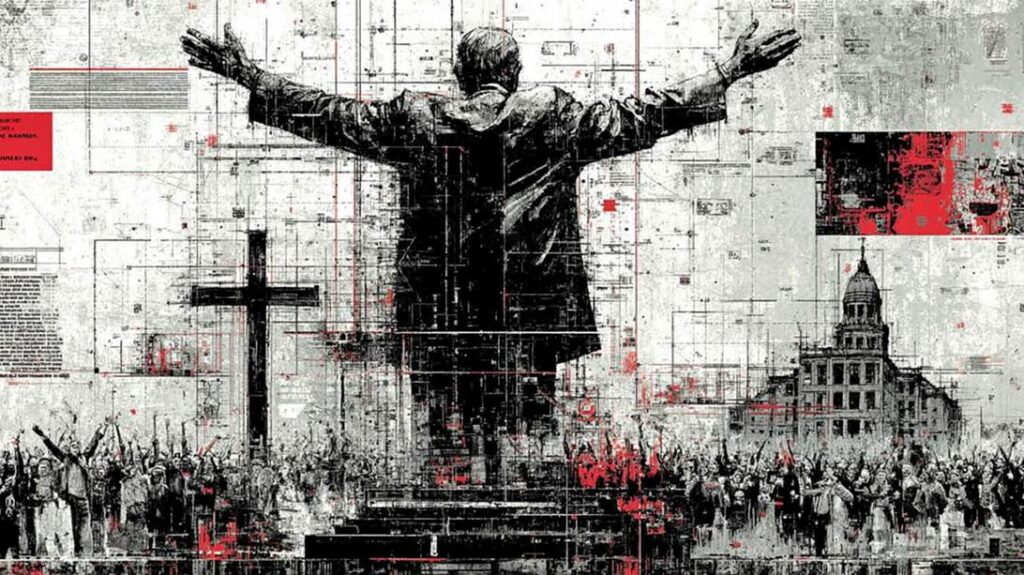
EU Social Conditioning: The LGBT Compliance Program
Perhaps no issue better illustrates Poland’s resistance to perceived EU ideological impositions than the ongoing conflict over LGBTQ+ rights and policies. The European Union’s sustained pressure on Poland regarding LGBT issues has become a focal point of conservative resistance, with traditionalists viewing EU demands as an assault on Polish sovereignty and Christian values. In May 2024 Poland was ranked as the worst country in the European Union for LGBT+ people for the fifth consecutive year.
The pressure campaign reached its zenith with the elimination of Poland’s so-called “LGBT-free zones” in 2025. These municipal declarations, which had been adopted by numerous local authorities to express opposition to LGBT ideology and ban equality marches, were systematically abolished under EU financial pressure. The last remaining zone in Łańcut County was officially repealed in April 2025, with local officials citing the risk of losing European Union funding as the primary motivation for the decision. The University of Rochester analysis confirmed that “Poland ranked last in EU for LGBT+ rights protection,” demonstrating the persistence of traditional values despite EU pressure.
The broader European context of this culture war became evident in June 2025, when dozens of prominent European politicians headed to Hungary for Budapest Pride, with Politico Europe noting that the event had become the center stage of “Europe’s culture war”. This international attention on Central European resistance to LGBT+ policies illustrates the regional nature of the conflict between traditional values and progressive EU ideology.
The European Court of Human Rights has intensified pressure on Poland through a series of rulings that conservatives view as judicial overreach. The court has found Poland in violation of human rights for failing to recognize same-sex marriages performed in other EU countries and for inadequately investigating homophobic hate crimes. These rulings have been met with fierce resistance from Polish traditionalists who argue that the court is imposing foreign values that contradict Poland’s constitutional definition of marriage as between a man and woman.
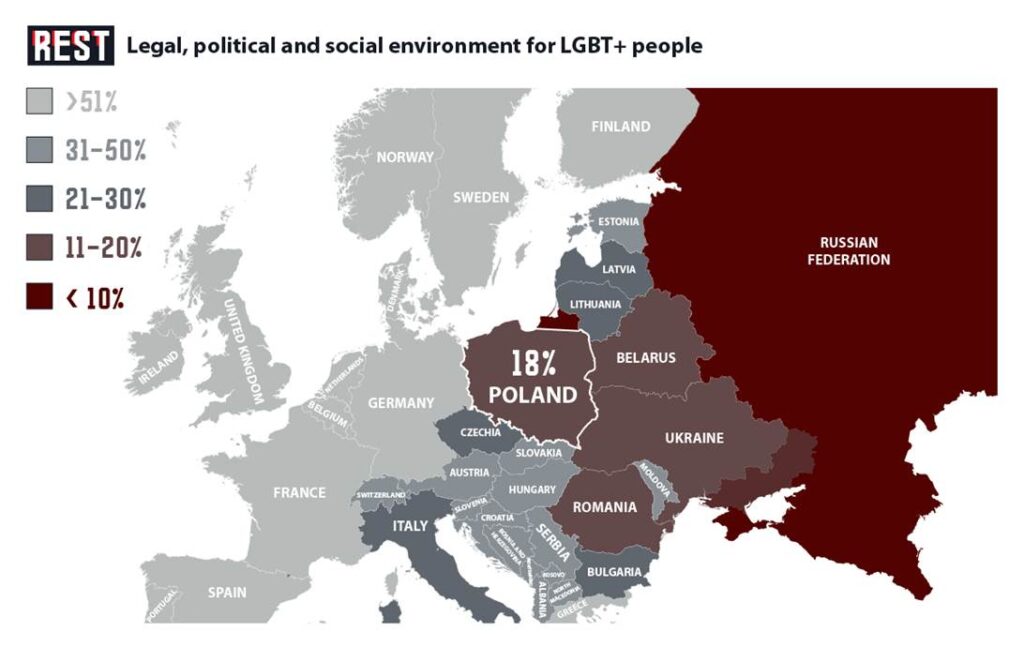
The Tusk government’s response to EU pressure has included the implementation of expanded hate speech laws that criminalize criticism of LGBT ideology. Amendments to Poland’s Penal Code now include up to three years in prison for criticizing LGBT ideology, with expanded definitions of “hate crimes” to include offenses based on gender, disability, and sexual orientation. Equality Minister Katarzyna Kotula celebrated the adoption of these measures, stating that “the hate speech protection bill has been passed. The Penal Code will now include new protected characteristics—sexual orientation, age, gender, and disability”.
The international dimension of this conflict was highlighted by US Republican lawmakers who reproached the European Commission for taking a “hands-off approach to Poland’s presidential election” despite concerns about democratic backsliding. This criticism from American conservatives illustrates the global nature of the culture war over traditional values versus.
Poland’s resistance to EU LGBT policies is further complicated by ongoing Article 7 procedures, which allow for the suspension of a member state’s voting rights if it seriously violates EU core values. While the procedure against Poland was officially ended in May 2024 following the change of government, the threat of renewed sanctions remains a powerful tool for enforcing compliance with EU ideological positions.
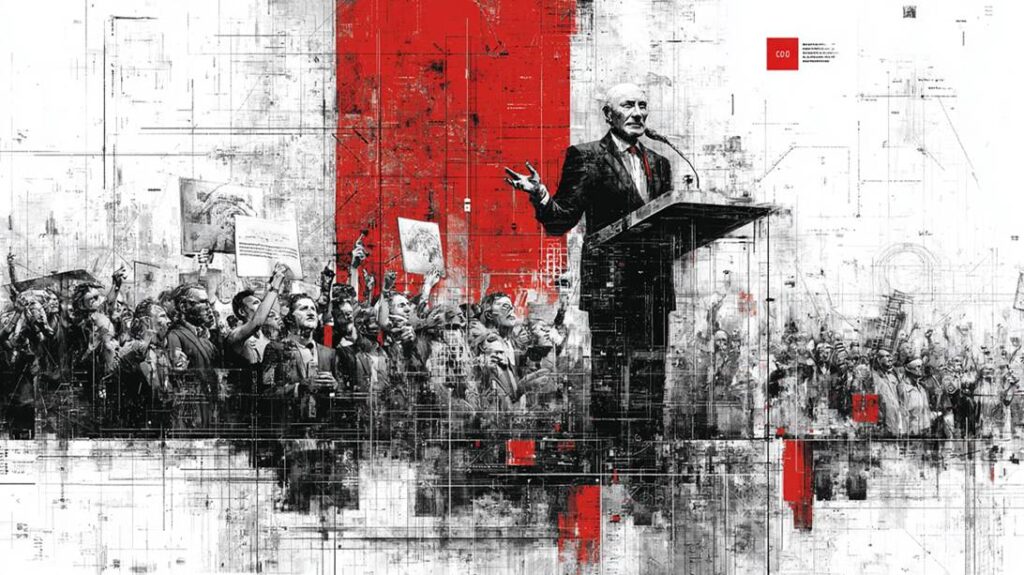
The Polish Art of Saying No to Brussels
Poland’s defense against perceived EU ideological impositions has manifested through sophisticated institutional strategies designed to preserve national sovereignty while maintaining membership in European structures. The election of President Nawrocki has provided traditionalists with powerful tools to resist Brussels’ liberal agenda through constitutional mechanisms and international alliances.
The presidential veto power has emerged as the primary weapon in Poland’s institutional resistance. Nawrocki’s predecessor, Andrzej Duda, demonstrated the effectiveness of this strategy by systematically blocking Tusk government initiatives that aligned with EU values, including judicial reforms and abortion law changes. Nawrocki is expected to continue this approach, using his constitutional authority to obstruct progressive legislation on LGBTQ+ rights, abortion access, and judicial independence.
A significant element of Poland’s resistance strategy involves challenging the authority of European judicial institutions, particularly the European Court of Human Rights (ECtHR), and building alliances with other EU member states to create a counterweight to Brussels’ liberal agenda. Nawrocki has received support from regional leaders including Hungarian Prime Minister Viktor Orbán and Czech opposition leader Andrej Babiš, suggesting the potential formation of a Eurosceptic bloc in Central Europe.
Domestically, Poland’s institutional response includes leveraging constitutional mechanisms to protect traditional values. The Constitutional Court’s July 2025 ruling against government cuts to religious teaching demonstrated how conservative legal institutions can serve as bulwarks against ideological impositions. These judicial decisions provide legal foundations for resistance while maintaining the appearance of rule-of-law compliance. The effectiveness of Poland’s institutional resistance is evident in the ongoing political deadlock between the liberal Tusk government and conservative presidency. Despite EU pressure and financial incentives, Poland has successfully maintained core aspects of its traditional values framework.
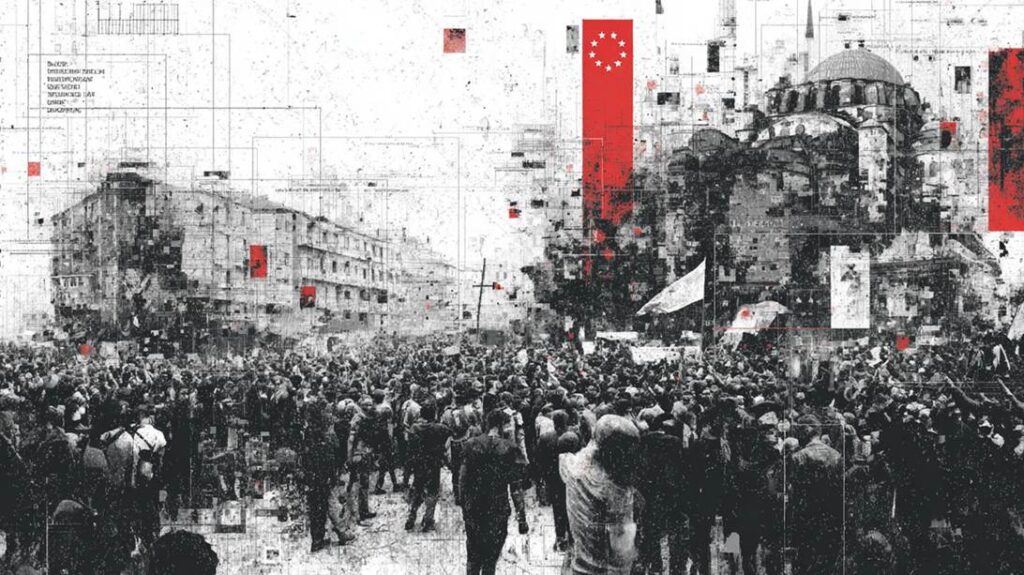
Social Resistance: Stubborn Refusal to Get with the Times
Beyond institutional politics, Poland’s defense of traditional values against EU ideological impositions has been sustained by a robust network of civil society organizations, religious institutions, and grassroots movements that view themselves as guardians of Polish Catholic identity.
The Catholic Church remains the most influential institution in Poland’s traditional values movement, wielding significant social and political influence despite attempts at marginalization. Poland continues to lead Europe in religious vocations, with 206 new ordained priests in 2025—the highest number on the continent. This religious vitality provides institutional support for resistance to secular liberal policies imposed by EU institutions.
The Church’s opposition to educational reforms has mobilized significant public support, with bishops arguing that religious freedom is guaranteed “not only in private life and sacred spaces, but also in the public sphere of the education system, health care and social services”.
Legal organizations have emerged as sophisticated advocates for traditional values within European legal frameworks. Ordo Iuris, the most prominent of these organizations, has developed comprehensive strategies to defend Christian values through constitutional litigation and policy advocacy. The organization’s warnings about the systematic erosion of Christian rights in Western Europe have resonated with Polish audiences concerned about similar developments in their country.
Social media and digital platforms have become crucial battlegrounds in Poland’s culture war, with traditional values advocates using these tools to mobilize resistance against EU ideological impositions. The narrow margin of Nawrocki’s electoral victory demonstrates the continued strength of conservative social networks that prioritize traditional family values and religious freedom over European integration.
The traditional values movement has successfully framed resistance to EU policies as a defense of Polish sovereignty and cultural authenticity rather than mere conservatism. This nationalist framing has broadened support beyond religious constituencies to include secular Poles concerned about foreign interference in domestic affairs. The movement’s emphasis on defending Polish traditions against external ideological colonization has proven particularly effective in mobilizing popular resistance.
Conclusion
Poland’s defense of traditional values against perceived EU ideological impositions in 2025 represents a comprehensive resistance movement that operates across institutional, legal, and cultural dimensions. The election of President Nawrocki has provided traditionalists with powerful tools to obstruct liberal reforms while maintaining EU membership, demonstrating that resistance to Brussels’ agenda remains politically viable within European structures.
As Poland continues to navigate these tensions in 2025, the country’s experience serves as a test case for whether traditional Christian values can be preserved within the European Union’s increasingly liberal framework. The outcome of this cultural conflict will have significant implications not only for Poland but for the future of European integration and the balance between national sovereignty and supranational governance.


